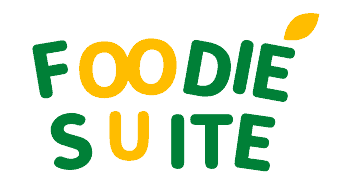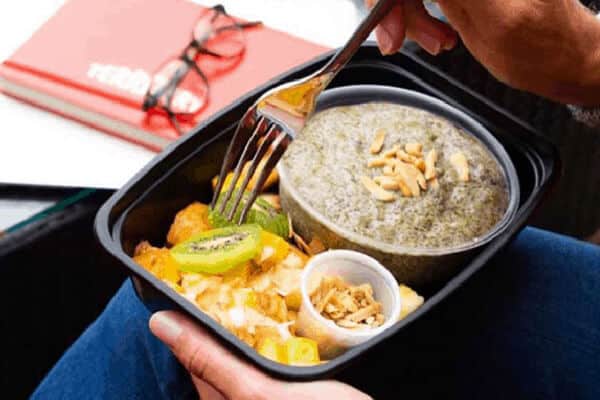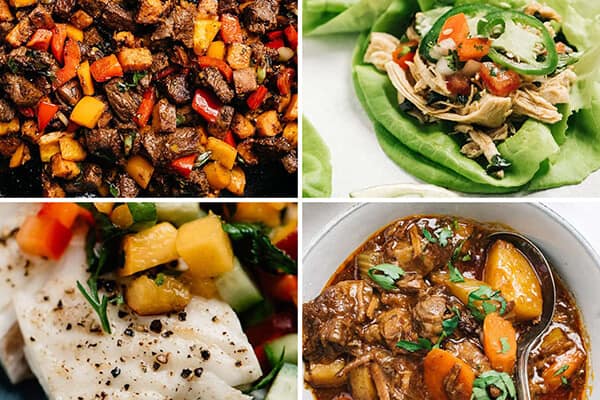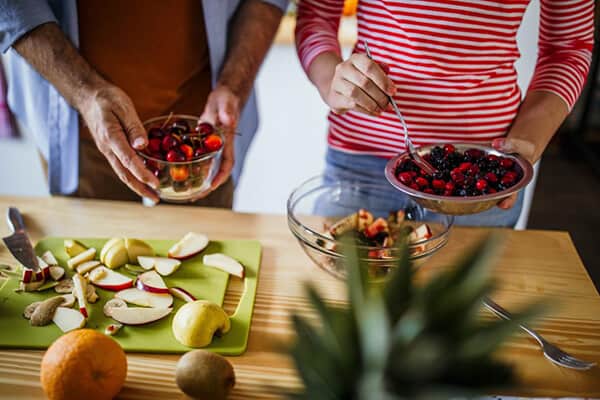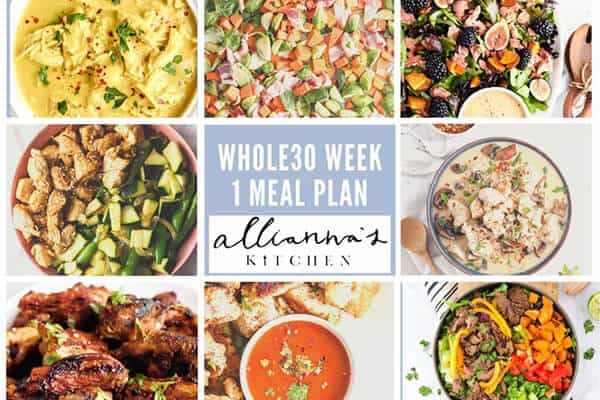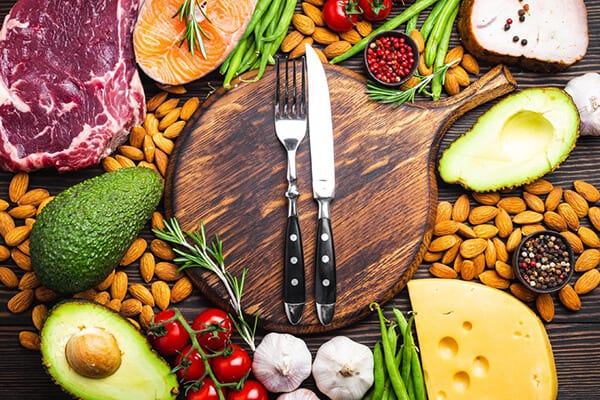Whole30 Foods to Avoid

So you have decided to embark on the great Whole30 journey. Chances are you already know what you are going against, which includes the duration of the program and the foods you are allowed to eat within the period. The Whole30 program is for 30 days, and in these 30 days, there is a list of approved foods, drinks, and snacks that you can eat.
There is also a long list of foods, drinks, and snacks you are meant to avoid for the duration of the program. You should know the rules of the game and play by them if you want to finish the program successfully. The Whole30 program also promises many great benefits, and you can enjoy those benefits only when you play by the rules of the game.
The program has many do’s and don’ts, and you would be bidding farewell to most of your favorite foods for the next 30 days. During the program, you will ditch mostly unhealthy and processed foods. Your diet will consist mainly of veggies, fruits, meat, fish, healthy fats, eggs, seafood, spices, and herbs. There is a list of Whole30 allowed foods and a list of Whole30 foods to avoid. In this article, we will be walking you through the list of Whole30 foods to avoid.
Whole30 Foods to Avoid
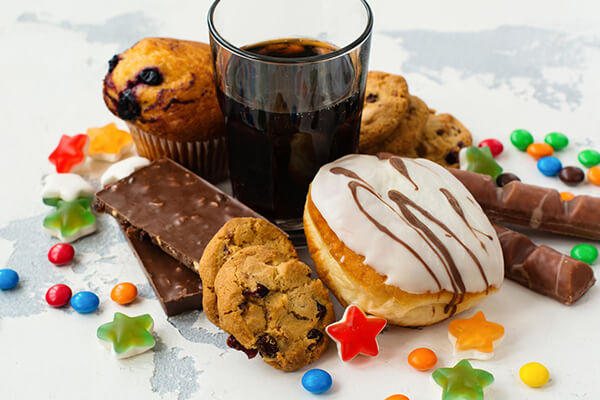
Here is a comprehensive list of all the foods you should avoid during this program:
Read more: Whole30 vs Elimination Diet
Added Sugar
One of the major things you need to avoid during this program is added sugar. You need to stay away from added sugar as far as possible. You should avoid every form of added sugar, including artificial sweeteners. Natural sweeteners such as maple syrup, honey, and coconut sugar are also not allowed. Here is a comprehensive list of other “hidden” names of sugar you should avoid.
Read more: Whole30 Chicken Recipes
- Acesulfame-K
- Agave nectar
- Arabitol
- Aspartame
- Beet sugar
- Brown sugar
- (evaporated) cane juice
- Cane sugar
- Coconut nectar
- Coconut sugar
- Confection’s sugar
- Date sugar
- Date syrup
- Dextrose
- Disaccharide
- Dulcitol
- Equal
- Erythritol
- Fructose
- Galactose
- Glucose
- Glycerin (glycerol)
- Glycol
- High fructose corn syrup
- Honey
- HSH
- Iditol
- Isomalt
- Lactitol
- Lactose
- Malt syrup
- Maltitol
- Maltose
- Mannitol
- Maple syrup
- Molasses
- Monk fruit extract
- Monosaccharide
- Nutra-Sweet
- Polyglycerol
- Polysaccharide
- Raw sugar
- Refiner’s syrup
- Ribitol
- Ribose
- Rice malt (extract)
- Rice syrup
- Saccharin
- Saccharose
- Sorbitol
- Splenda
- Stevia
- Sucralose
- Sucrose
- Sugar
- Sweetleaf
- Sweet-n-Low
- (sweet)
- sorghum
- Threitol
- Treacle
- Truvia
- Xylitol
Hence, you should check any product you purchase very well to make sure it does not contain any of the sugar forms listed above.
Read more : 9 Whole30 Dessert Recipes You’ll Love
Dairy
When you start the Whole30 challenge, you have to stay away from Dairy as well. The only types of dairy you are allowed to take are clarified butter or ghee. You are to avoid other types of dairy including sour cream, yogurt, milk, butter, whey, cream cheese, and cheese. You would be needing clarified butter or ghee in most of your meals, and you will enjoy cooking with it.
Read more: Paleo vs Keto vs Whole30
Legumes
The Whole30 program eliminates all forms of legumes. The list includes beans (red, black, navy, pinto, chickpeas, garbanzo, kidney, white, fava, lima, adzuki, mung, black-eyes peas, cranberry, lentils, and cannellini. Peanuts, including peanut oil and peanut butter, are also not allowed. The only forms of legumes you are allowed to take during the program are peas and green beans because they do not cause inflammation like other types of legumes.
Read more: Whole30 Dinner Recipes
Grains
Grains are one of the numerous Whole30 foods to avoid. The list of grains to avoid include (but is not limited to) barley, bulgur, rye, wheat, sprouted grain, rice, corn, millet, sorghum, and oats. The list also extends to gluten-free pseudo-cereal such as buckwheat, amaranth, and quinoa.
This also includes the different ways you add corn, rice, and wheat to your foods in the form of starch, germ, bran, and more. Whatever product you buy, you should read the label carefully to make sure it does not contain any non-Whole30-compliant ingredients.
Read more: Reasons to Hire a Whole 30 Coach
Gluten
Gluten is one of the major causes of inflammation in the body. By eliminating gluten from your diet for 30 days, you will experience a significant reduction in inflammation in your body. Hence, you need to avoid anything that contains gluten for the duration of this program. This would help your body to reset easily, improving your overall health and wellbeing.
Read more: Whole30 and Pregnancy
Soy
Soy also made it to the list of Whole30 foods to avoid. You need to stay away from all sorts of soy for the next 30 days. The list of unaccepted soy includes soy lecithin, tamari, soy sauce, miso, tempeh, tofu, and more. You should also avoid products containing these ingredients.
read more: Whole30 Breakfast
Alcohol
If you drink alcohol, whether occasionally or regularly, you need to stop it completely during this program. The program does not allow for any kind or form of alcohol. Alcohol you might use for baking or cooking is also included. You cannot take wines, spirits, liquors, and more. You have to avoid foods or any food product containing alcohol, no matter how little the alcohol percentage is.
Read more: Whole30 Allowed Foods
Additives
You ought to avoid some additives in your food. This includes maltodextrin, corn starch, carrageenan, soy lecithin, sulfur dioxide, sulfites, sodium bisulfite, potassium metabisulfite, monosodium glutamate (MSG), and more. Your meals are to be free from additives and artificial flavors, colors, and preservatives.
Read more: Whole 30 Meals | Whole 30 Day by Day Meal Plan
Junk Food
This is one of the major problems of many people – junk foods. There are people who solely depend on junk foods all day long. If you fall into that category, it is time for a drastic change. You need to give up on junk foods, treats, and baked goods for the next 30 days.
Even if the junk foods, treats, and baked goods are made with Whole30 compliant ingredients, you need to stay away from them. This includes cookies, pancakes, potato chips, bread, and more. Recreating your favorite baked goods or junk food is also not allowed.
Read more: Paleo and Whole30
No Fake Food
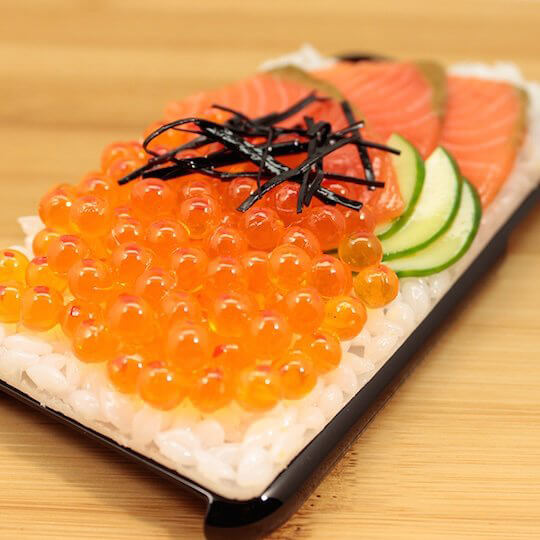
Fake foods are the major enemies of the Whole 30 program. No one will tell you this program is easy because it is not. However, you have to be determined and make up your mind before you embark on this journey. If you want to take on this challenge, then you need to stick by the rules and stay true to the course.
In the whole30 program, processed foods and junk foods are no-brainers. They contain very addictive flavors and ingredients, but they add very little to no nutritional value to your body. Processed and junk foods can be addictive, and they contain additives and chemicals that cause damage to your health over time.
You should also avoid the temptation of recreating your favorite junk food with Whole30 compliant ingredients. Rather, you should start all over with new Whole30 recipes and ingredients. You should do everything within your reach to break the physical and mental addiction you have with processed and junk foods. This means you have to give up the “idea” of junk and processed foods as well.
MSG, sulfites, and carrageenan have a negative impact on the health and overall wellbeing of many people, and those additives are often found in processed foods. By eliminating junk and processed foods, you will notice a massive improvement in your health and overall wellbeing.
Read more: Quick Whole30 Meals
Foods that Could Trigger Sickness
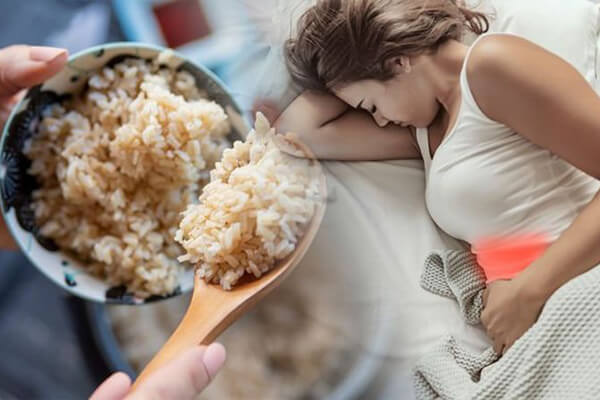
This program eliminates grains and dairy from your diet because they can cause inflammation in the body. Grains are acidic, and they cause acidic reactions in the body, which can result in fatigue, aches, and pains.
Dairies are also not safe, as they cause some underlying health conditions. During the first 30 days, you should avoid cooking with alcohol or even having a sip of it. The list also includes extracts like vanilla – you have to stay away completely.
The Whole30 program allows for the consumption of Kombucha, which contains very little amount of alcohol. However, if you must drink Kombucha, make sure you opt for the one that does not contain added sugar from fruit juice.
The major reason why legumes are not allowed in this program is that they contain phytates. Phytates reduce the ability of your body to absorb vital minerals very well. They are also known to be one of the major causes of inflammation. The only legumes that are safe to consume during this program are green beans and peas.
The whole30 diet promotes healthy eating. It would introduce you to a new eating habit that will benefit your physical health, mental health, and overall wellbeing. In the next 30 days, you would be eating more fruits, vegetables, seeds, nuts, eggs, and other unprocessed foods that would help enhance your health and fitness.
Read more: Nursing and Whole30
Conclusion
Knowing the Whole30 foods to avoid is very important, as you need to exclude them from your shopping list. You need to know what you are allowed to eat and not to eat during this program, as this would help to make your planning process very easy. This challenge requires a lot of planning, including your meals for the day, week, and the whole 30 days. Now that you know the foods you are not allowed to eat during the program, we believe you now know what you are up against.
Read more: Whole30 Vegetarian | Whole30 Meals for Vegetarians
